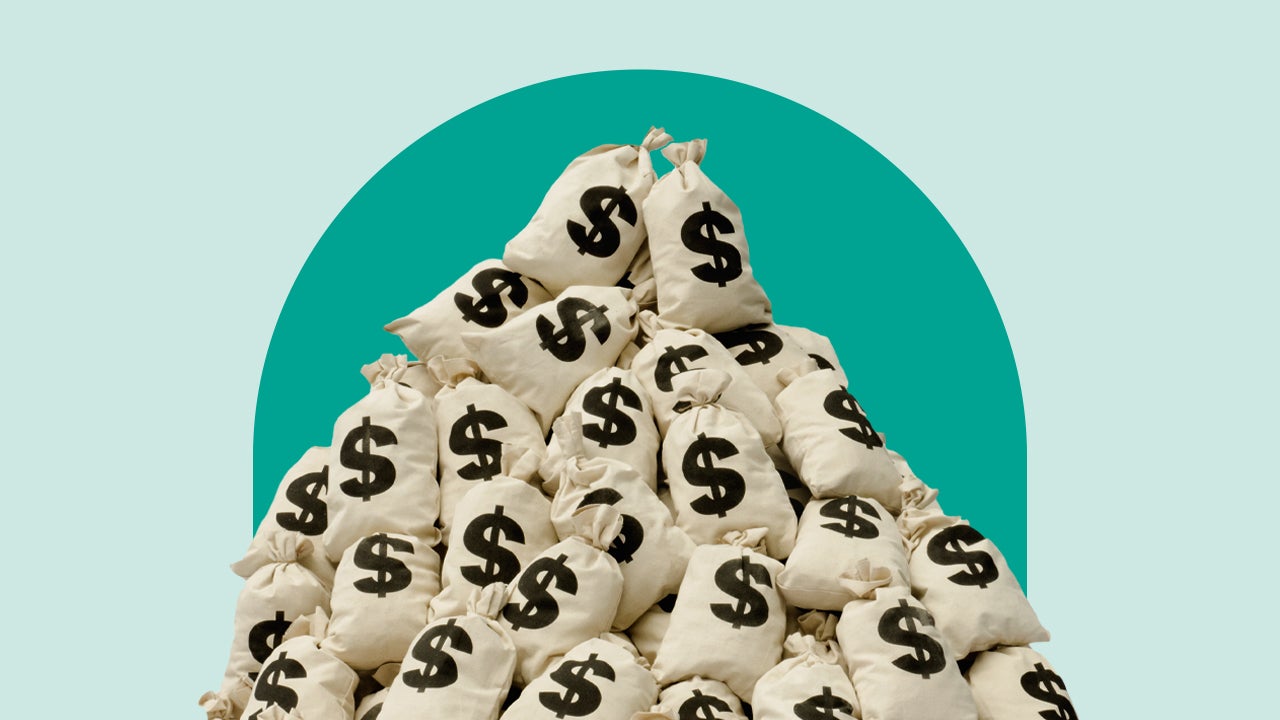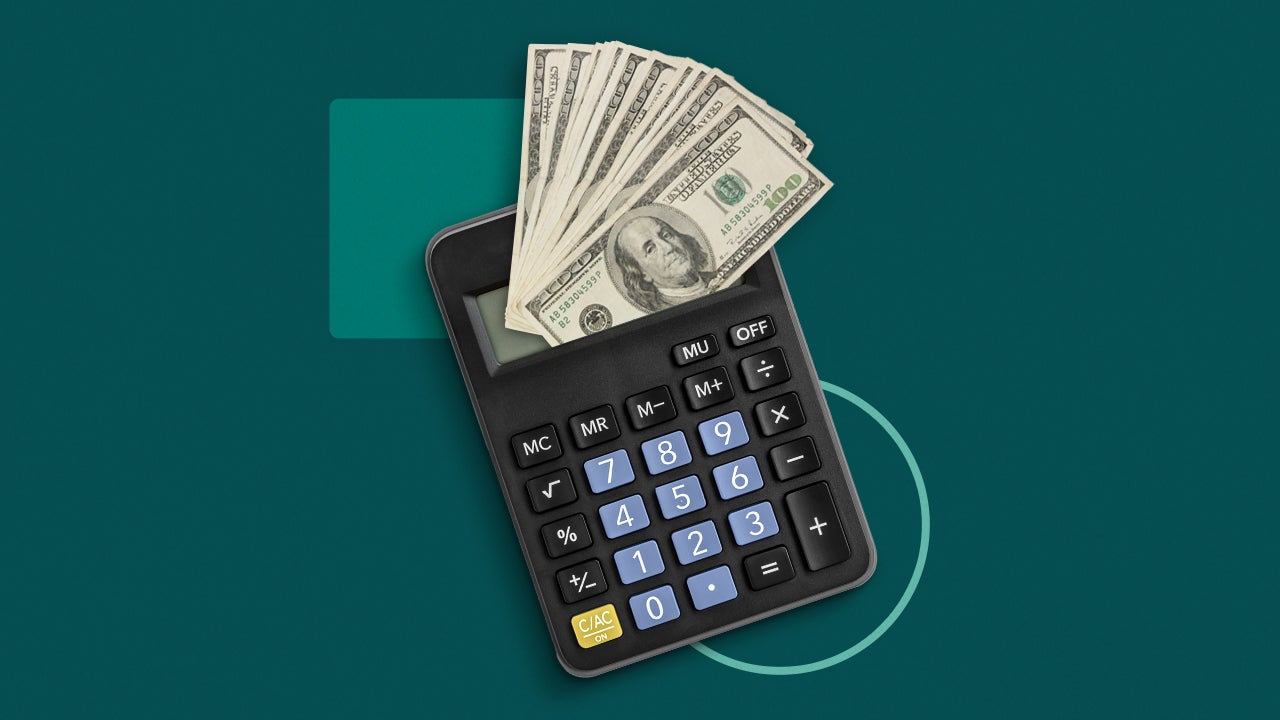Should you get a personal loan? Here are the pros and cons

Key takeaways
- A personal loan can get you cash within days at a fixed rate and steady payment.
- Personal loans tend to carry lower, more affordable interest rates than credit cards, if you have good or better credit.
- Before deciding to get a personal loan, consider potential downsides, such as steep fees and rigid repayment terms.
Personal loans can be a useful tool to help streamline your budget or get money fast in an emergency. From debt consolidation to paying a big car repair bill, you can usually qualify with a good credit score and stable income.
Many lenders even offer same-day funding, giving you access to funds quickly. The average personal loan rates are also typically lower than credit cards, which could save you hundreds, if not thousands, in interest charges.
A personal loan is a unique borrowing tool because it offers structure, predictability, and versatility all in one product.— David Kimball, chairman and CEO of Prosper
However, like all financial products, personal loans have drawbacks. Some lenders charge high fees, and the monthly payment may be steep if you only qualify for a short repayment term.
Advantages of personal loans
Knowing some of the reasons to get a personal loan will help you determine if this type of financing is the best choice for your borrowing needs.
“Personal loans can be useful in the right circumstances, but they are not a one-size-fits-all solution,” says David Kimball, chairman and CEO of Prosper. “Remember to ask the right questions and choose a loan that supports — not hinders — your journey to financial success.”
Predictable monthly payments
Since you pay off a personal loan in installments at a fixed rate, you have a predictable monthly payment that won’t change for the life of the loan. Kimball notes that the predictability can make it easier to manage your budget and plan your other financial obligations.
That gives you much more stability than credit cards without the risk of overborrowing or carrying a balance month-to-month. You can also repay the loan over terms as long as seven years, giving you breathing room in your budget.
Low average interest rates
Personal loans often come with lower interest rates than credit cards. As of February 2026 the average personal loan rate is 12.27%, while the average credit card rate is 19.61%. Borrowers with excellent credit may qualify for the lowest rates lenders offer, which are under 10%.
Getting the lowest possible interest rate is critical because it directly affects the cost of your loan. That also explains why it’s economical to choose the shortest repayment term (and highest monthly payment) that you can realistically afford. Interest will have less time to accumulate, which means paying less overall.
Quick funding times
Many personal loan lenders, especially online companies, offer quick approval and funding timelines, giving you access to funds usually within one business day. That makes them good loans for emergencies or other situations where you need money quickly.
In fact, some lenders are able to deposit the loan proceeds into your bank account the same day you apply. That may not be as fast as using the plastic in your wallet for an urgent expense, but consider that credit cards may have higher interest rates and aren’t installment loans with a set payoff date.
Credit instead of collateral
Most personal loans are unsecured loans, so you don’t need collateral like a car or home to be approved. If you’re unable to repay the loan, your credit score could be damaged, but because it’s not secured, you won’t risk losing your transportation or shelter from a bank repossession or foreclosure.
Lenders typically approve you based on proof of stable employment, regular earnings and your credit scores. Since the lender doesn’t have to evaluate the value of any collateral to lend you money, the process is often faster than a secured loan.
Some lenders offer secured personal loans at lower rates than you can get with an unsecured loan. Just remember you could lose the asset if you can’t pay the loan back.
Flexibility and versatility
Personal loans can be used for many purposes, such as paying for home improvements, buying an expensive vehicle like a boat or recreational vehicle or consolidating multiple debts into one easy-to-track payment. You’re not limited to specific uses like you are with a car loan, which can only be used to buy a vehicle.
Some lenders offer loan amounts as high as $100,000, giving you much more borrowing power than most credit card companies allow. Plus, getting your entire loan at once makes it easier to fund everything from major home renovation projects to major life events like weddings.
That said, there are some limits. Personal loan money generally cannot be used for college tuition and other post-high school education expenses, investing or anything illegal.
Positive credit impact
Many people use personal loans to consolidate debt, especially revolving debt like credit cards. The reason is simple: Paying off credit cards is a great way to improve your credit utilization ratio which plays a major role in your credit scores.
It could also reduce the risk that you end up with a late payment trying to manage several variable-rate credit card payments each month by replacing them with one fixed-rate personal loan payment.
Disadvantages of personal loans
“While a personal loan can be helpful, they’re not always the right solution for every situation,” Kimball says. “Like any financial tool, personal loans have potential downsides that need careful consideration.”
Learn the cons so you don’t get in over your head with a regular fixed payment that your budget can’t handle.
Rigid repayment schedule
Once you choose your loan amount and repayment term, you’re locked into that payment until the repayment period is over.
“While a single fixed monthly payment is often a benefit, it can become a burden if it strains your budget,” says Kimball. “Taking on debt you can’t comfortably afford each month can lead to increased stress and potentially damage your credit if payments are missed.”
If your income varies, you may want to stick with a credit card, since your payment is only based on what you use and you have a minimum payment option. (Just do your best to zero your balance each month, if possible.) If you don’t need all the funds at once, however, you may want to check out a personal line of credit or home equity line of credit. You can use the funds as you need them, pay the balance off and reuse the line of credit as needed.
Fees and penalties
Personal loan lender origination fees, if charged, can range from 1% to 12% of the loan amount. The fees are generally subtracted from the amount disbursed to the borrower.
Although rare, some lenders charge prepayment penalties if you pay the balance off before the end of your loan term. Before applying, review all fees and penalties of any personal loans you are considering.
When choosing your final loan amount, account for fees. They are typically deducted from the amount you borrow. Once you sign on the dotted line, you’ll have to start over with a new loan to get any additional funds.
Increased debt load
Many lenders set a maximum payment period of five years, which could result in a monthly payment that significantly increases your debt-to-income (DTI) ratio. Lenders measure your DTI by dividing your total debt by your before-tax income. A high DTI ratio may make it difficult to borrow money (at competitive interest rates) in the future.
“The path to improving your financial well-being requires an ongoing commitment to manage your spending and saving habits,” says Kimball.
Taking out a personal loan can help you consolidate high-interest debt. It can also cause you to go deeper into debt if you don’t address bad money habits like spending without a budget, not saving enough or impulse spending.
Credit can’t be reused
Personal loans require you to receive all your money at once and make payments on the entire balance. Credit cards allow you to use as much or as little of your approved credit as you want and reuse it in the future.
Even if you don’t need all the personal loan money right away, you immediately start making payments on the entire balance. Your credit card payment, on the other hand, is only based on the charged amount, not your entire credit limit.
Potential credit damage
Applying for a loan can lower your credit score temporarily since the lender will conduct a hard credit inquiry. However, the initial dip doesn’t last long and the short-term harm due to the inquiry may be more than offset by a reduction in your credit utilization ratio, especially if you’re paying off piles of credit card debt.
The amount of revolving debt you owe makes up 30% of your FICO Score, so if you consolidate your debt and reign in any future credit card use, your scores could rise substantially.
Help us shape the future of personal finance
We’re building something new to make rate shopping smarter and simpler. Join our waitlist to get early access, share your feedback, and unlock exclusive offers.
Priority rate alerts
Exclusive member offers
Time saving
Limited spots remaining
You're signed up!
Now, help us personalize your experience. Answering the next few questions will ensure you receive the most relevant tips and offers.
What are you looking for?
Tell us which products you are in the market for
What do you already have?
Tell us which products you already have
Tell us a bit more about you.
Are you a homeowner?
Tell us about your financial situation
What is your FICO credit score
One more thing
What is your annual income?
Stay tuned to see what we're building
You're all set! We're gearing up to share something big. You'll hear from us soon with what's next.
Should you get a personal loan?
Getting a personal loan is an attractive option, especially if you need quick cash.
If you can qualify for a single-digit interest rate on a personal loan, either independently or with a co-applicant, it can be a great tool to consolidate debt or cover another essential expense. Applying for personal loans with fair or poor credit (or without a co-applicant) is more risky, as you may face double-digit or even credit card-like APRs. In this case, instead of resorting immediately to a personal loan, consider other borrowing options — as well as the tried-and-true, but time-intensive strategy of budgeting and saving up.— Andrew Pentis, Bankrate consumer lending analyst
When a personal loan might be right for you
Once you’ve investigated the options available to you and your potential rates, you must discern whether a personal loan might make sense for your situation.
- You have a strong credit score: The lowest interest rates are reserved for borrowers who have good credit.
- You make a steady paycheck: A personal loan only makes sense if you have a regular paycheck and make enough to comfortably make the payments for the term you choose.
- You want to pay off high-interest debt: Personal loans are a good way to consolidate and pay off costly credit card debt.
- You’ll use the funds toward necessary expenses: Other good reasons to use personal loans include paying for emergency expenses or remodeling your home.
When to look for an alternative
Personal loan alternatives might be a better fit for some circumstances.
- You have a habit of overspending: Paying your credit cards off with a personal loan may not make sense if you immediately begin building up a new credit card balance.
- You can’t afford the monthly payments: Consider a personal loan’s repayment timeline and monthly payments. Create a budget, and use a personal loan calculator to determine whether you can afford the monthly payments for the term you’ll spend paying it off.
- You don’t need the money urgently: It might make sense to build up your savings to pay for a large purchase instead of taking out a personal loan and making payments with interest for many years.
- Your income or employment situation is shaky: Committing to a regular monthly payment for the next two to seven years doesn’t make sense if your paycheck or employment is inconsistent. Seasonal workers, commission employees and self-employed consumers may be better with the flexibility of a credit card or line of credit.
Bottom line
Personal loans have a lot of benefits for borrowers who need money quickly and prefer the security of a fixed rate and payment for the life of the loan. However, they can be expensive if you have bad credit and could quickly become a financial burden if your income isn’t predictable.
With that in mind, if you decide a personal loan is best, always compare interest rates and loan terms. Once you read the fine print, including fees and penalties, decide if the benefits of a personal loan outweigh the drawbacks before committing.
According to Kimball, “Loan providers may have complex terms, and it’s imperative that borrowers fully understand these to ensure the loan truly helps them advance their goal of financial freedom.”
Why we ask for feedback Your feedback helps us improve our content and services. It takes less than a minute to complete.
Your responses are anonymous and will only be used for improving our website.











